APTA 2025 Mobility Conference: Renewed Confidence, Commitment
4/11/2025
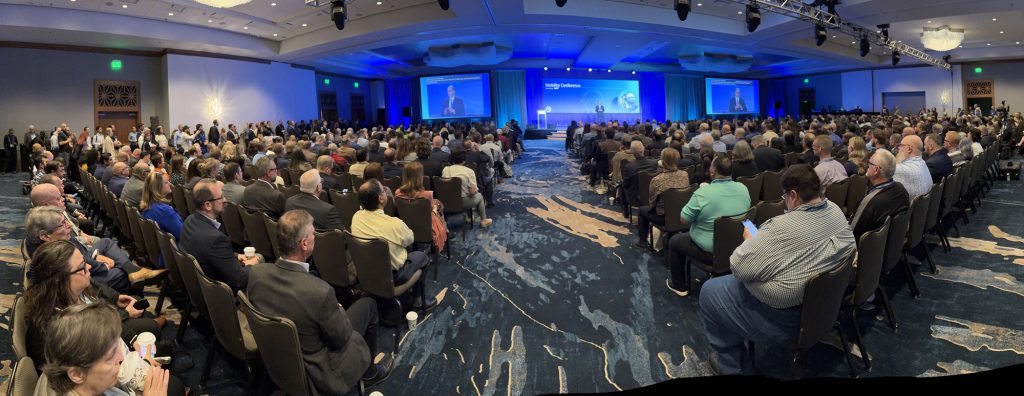

APTA’s 2025 Mobility Conference and International Bus Roadeo opened April 7 in Austin, TX, with a third consecutive year of record-setting attendance and the largest number of Roadeo competitors in APTA history—75 drivers and 52 maintenance teams from 32 states and Canada.
More than 2,200 people gathered for the two events, which included 33 educational sessions, 208 speakers, on-site tours, and a special focus on AI, autonomous vehicles, economic success stories, and innovations by Texas transit agencies.
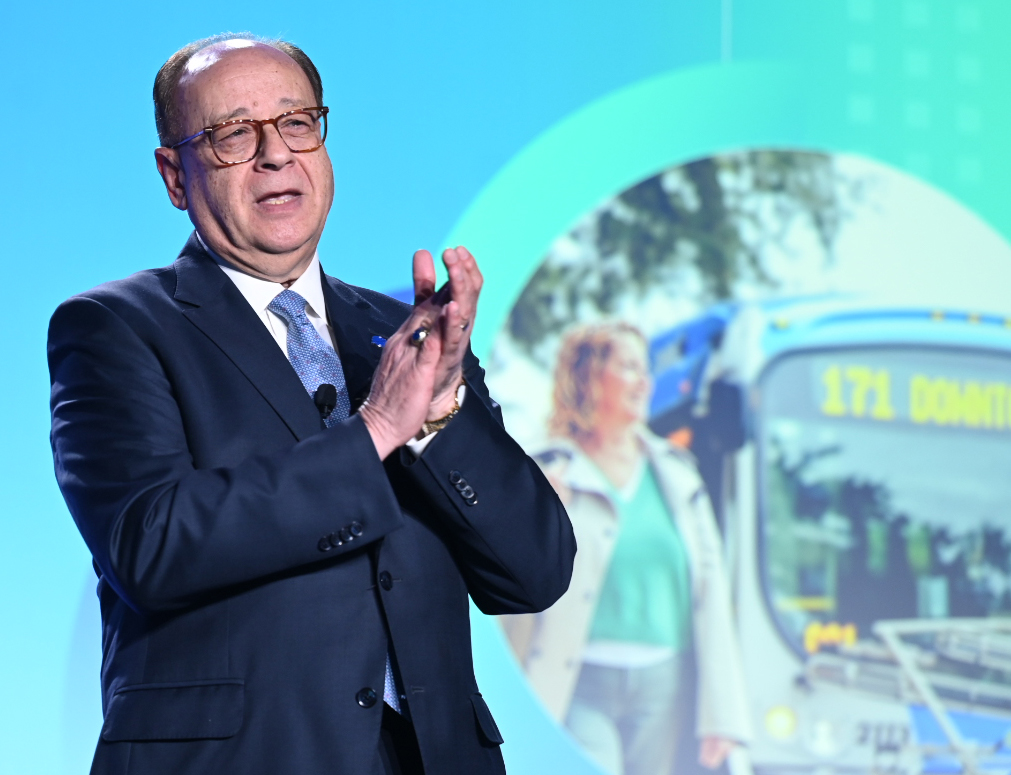
APTA President and CEO Paul P. Skoutelas reported the good news that Congress recently appropriated FY25 funding at last year’s robust levels, calling it “a major victory for public transportation.” He applauded APTA members’ success in expanding service, increasing ridership, improving safety and efficiency, and investing in capital projects.
At the same time, Skoutelas cited ongoing fiscal, social, and political challenges, including policy changes by the Trump Administration.
“To position our industry for success in this uncertain environment, APTA has adopted a pro-active strategy to communicate the national economic importance of public transportation funding,” he said.
Skoutelas described outreach to incoming USDOT leaders, visits with members of Congress, an online monitoring tool and webinar series to track Trump Administration directives, and a messaging campaign around “transit funding creates jobs.”
“Our mission remains as important as ever,” he said. “APTA’s work continues with a new urgency” to secure full funding for the final year of the IIJA, and to build consensus for the next Surface Transportation Authorization Act.
MJ Maynard-Carey, APTA chair and CEO of the Regional Transportation Commission of Southern Nevada, described the importance of creating a strategic “mobility toolkit” to address today’s evolving community needs and challenges. Quoting a research study, she told attendees “agencies that use integrated transit approaches see nearly 25 percent higher customer satisfaction.”
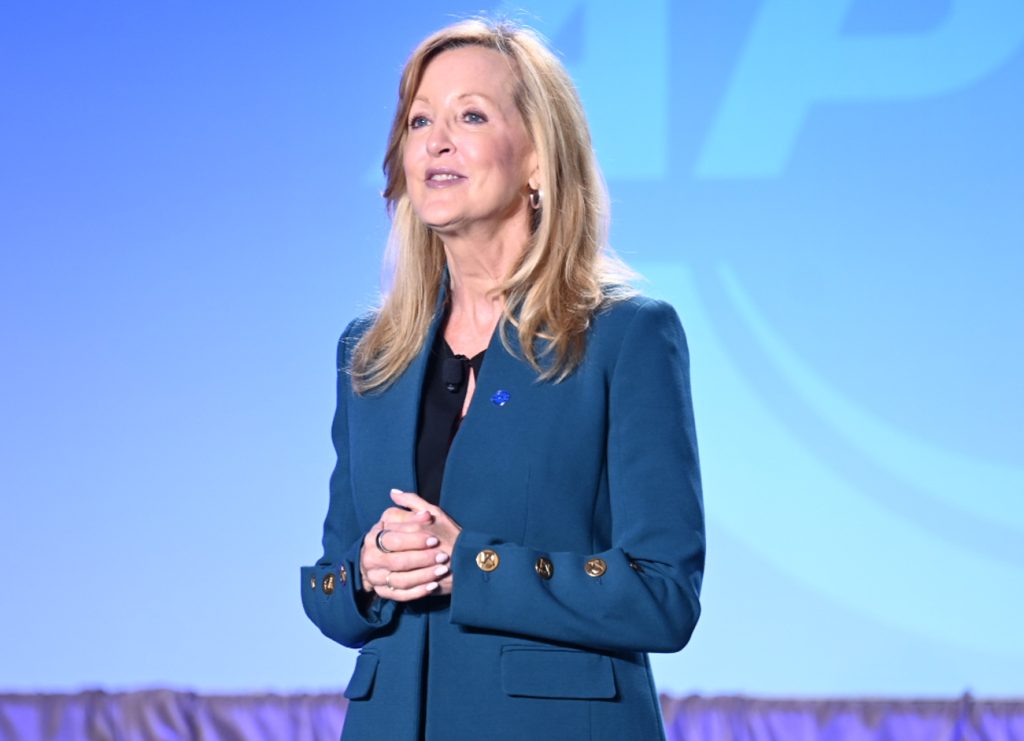
Maynard-Carey described the unique benefits of various transit services—fixed route, microtransit, on-demand, paratransit, autonomous—but added it is not simply about filling the toolbox with more options. “Rather, it’s strategic integration that matters,” she said, “tailoring the right modes to a community’s demographics, geography, finances, travel needs, and public support.”
This integrated approach, she explained, also requires new ways of measuring success. She urged transit agencies to “move beyond monitoring ridership and to adopt what the Harvard Business Review called ‘The New Metrics of Public Transportation Success,’ such as efficiency, sustainability, accessibility, social gains, economic growth, and job creation.”
Calling the “mobility toolbox” a strategy that supports her three goals as APTA chair, Maynard-Carey said this is a narrative about: 1) challenging misconceptions about transit; 2) encouraging innovation; and 3) demonstrating our role in creating jobs and driving economic growth.
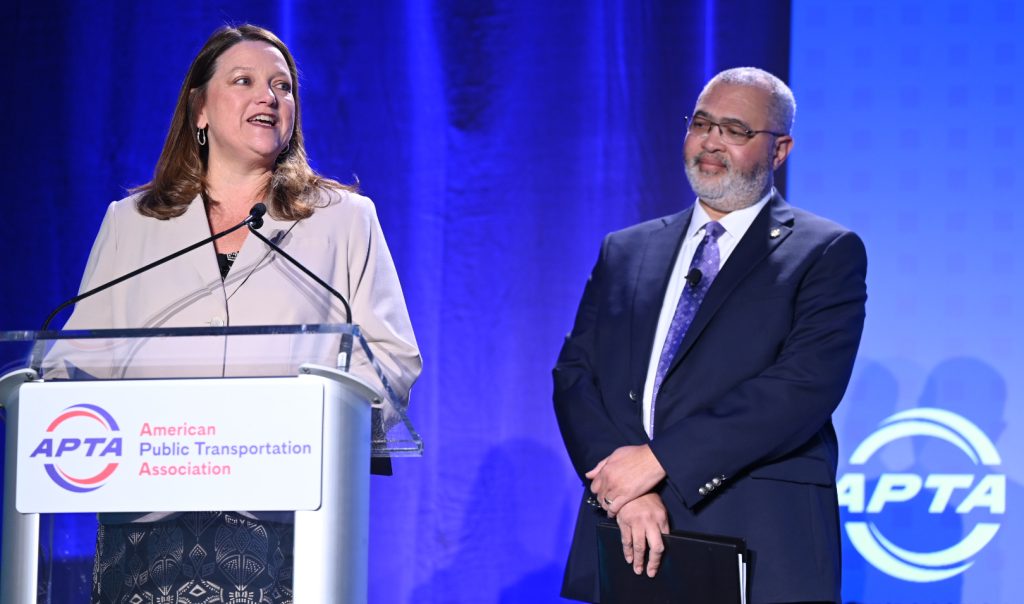
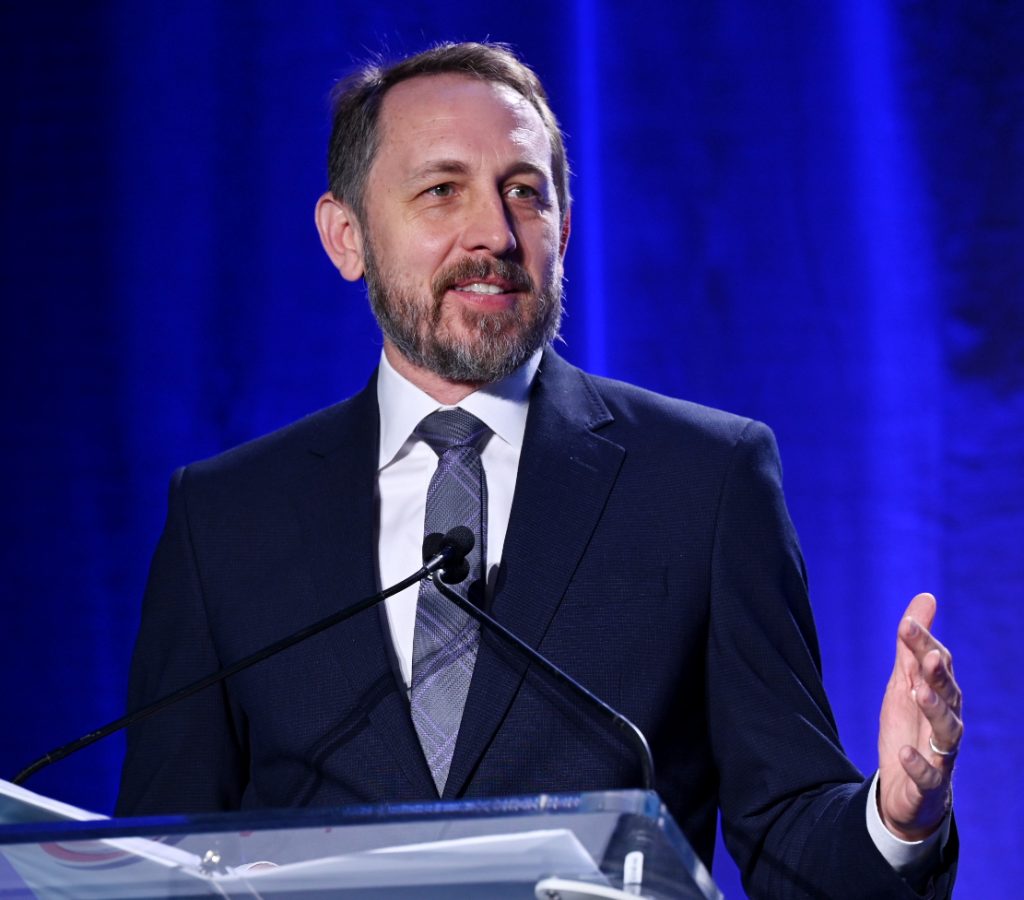
Other speakers included leaders of the host agency, Capital Metropolitan Transportation Authority President and CEO Dottie Watkins and Board Chair Jeffrey Travillion; Travis County Judge Andy Brown, and Austin Mayor Pro Tem Vanessa Fuentes. In addition, HNTB Corporation, sponsor of the Mobility Conference, was represented by Andrew Brennan, vice president, National Transit & Rail Practice; and UZURV, sponsor of the Opening General Session, presented a video.
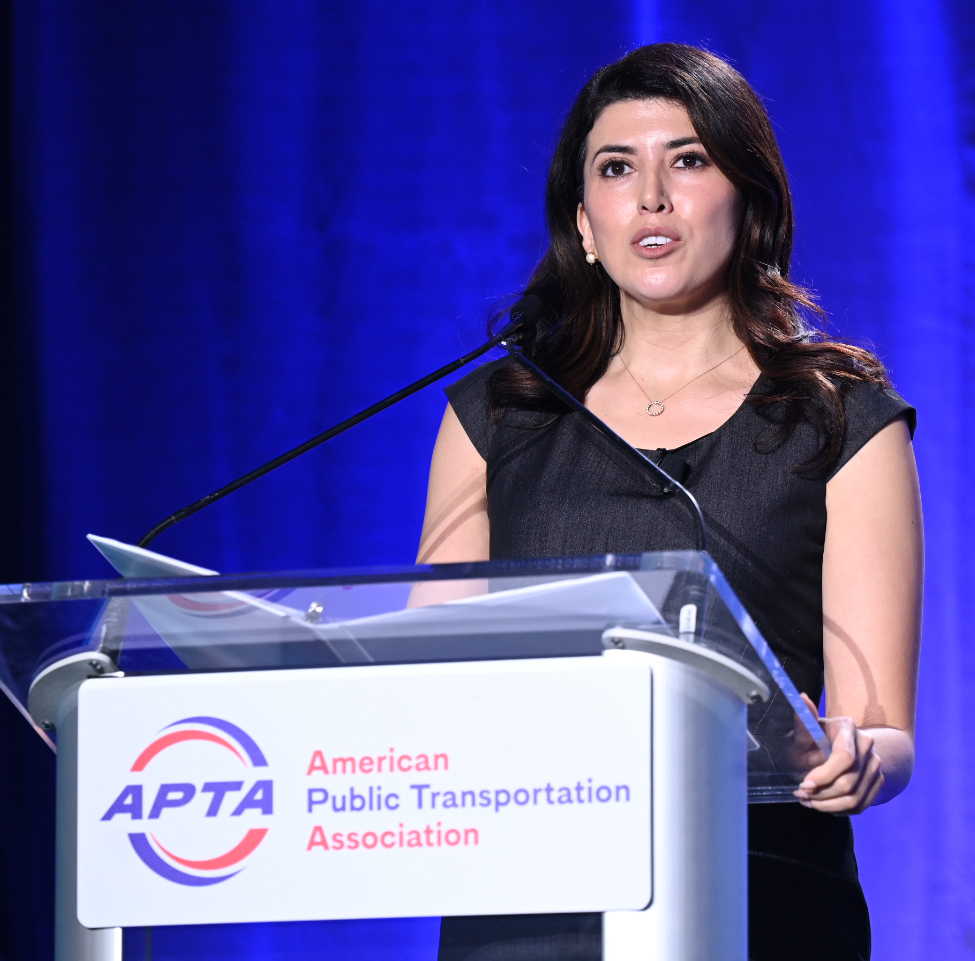
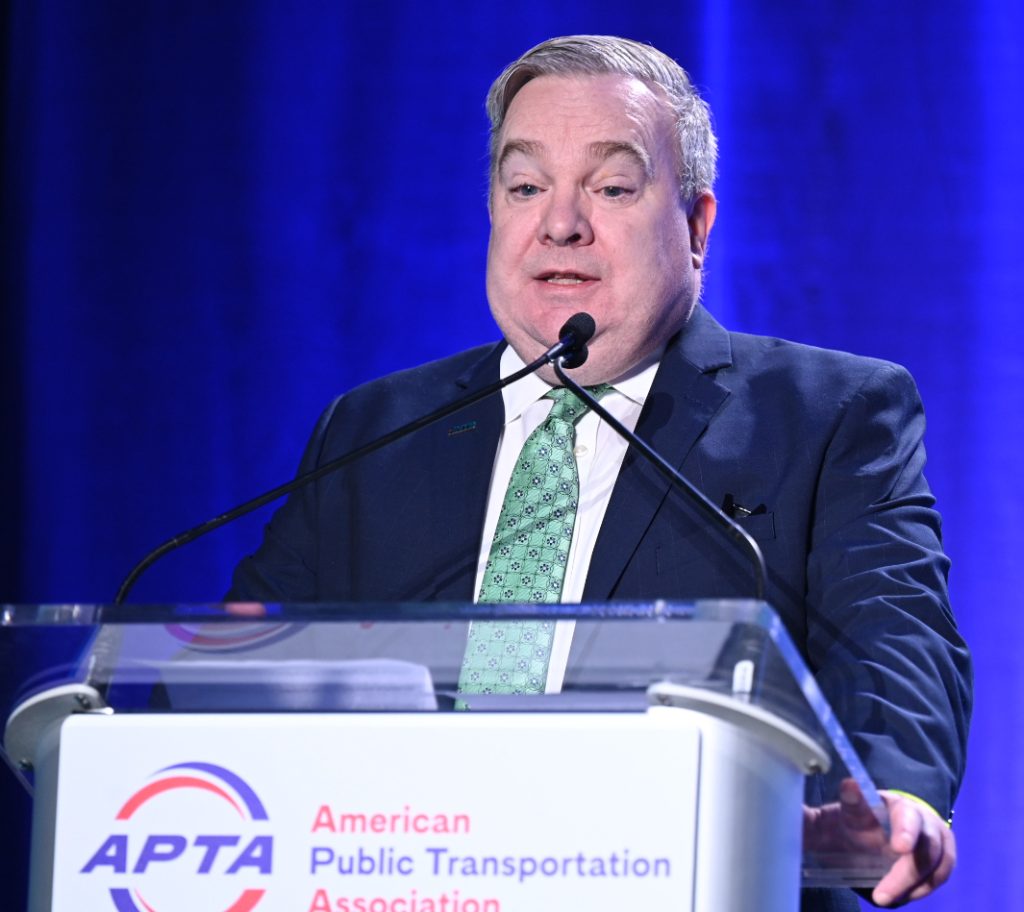
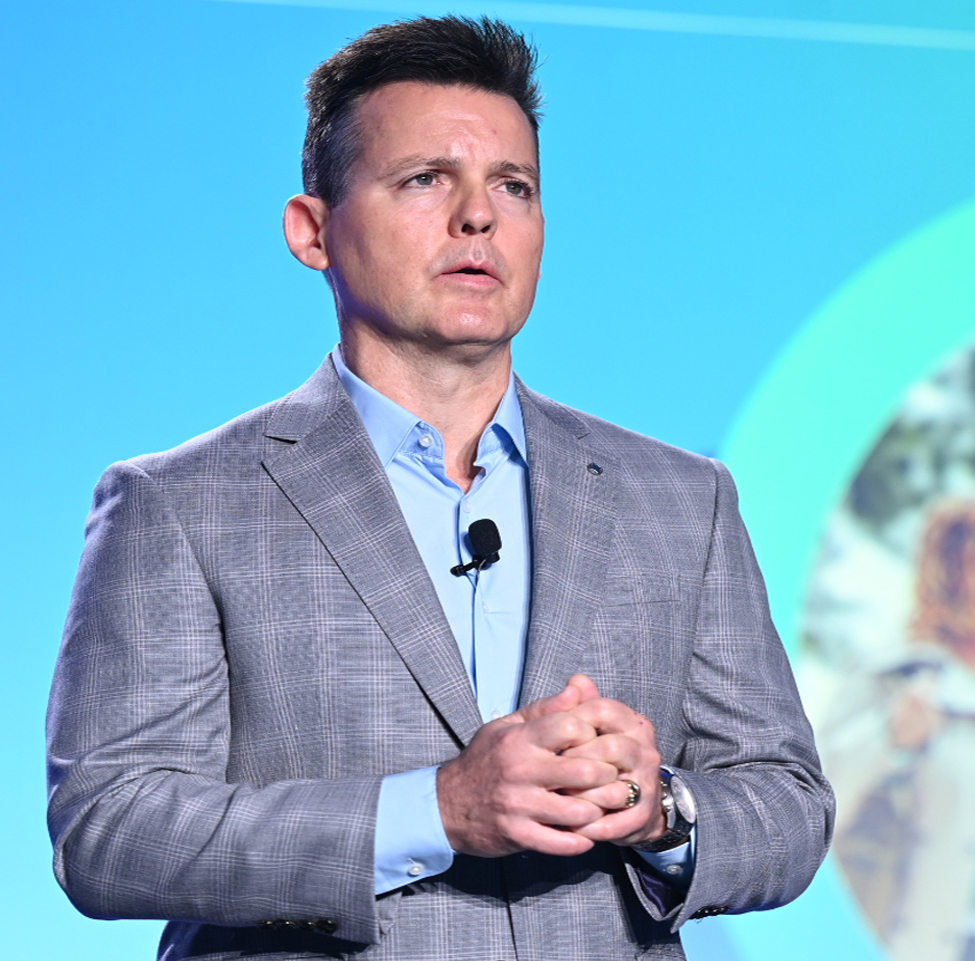
Keynote speaker Amy Jo Martin, founder and CEO of Renegade Global, was sponsored by APTA’s Business Member Board of Governors and introduced by its chair Raymond Melleady, president of Ster Seating.
Martin’s superpower is seeing the potential in people before they see it in themselves, and turning that awareness into action.
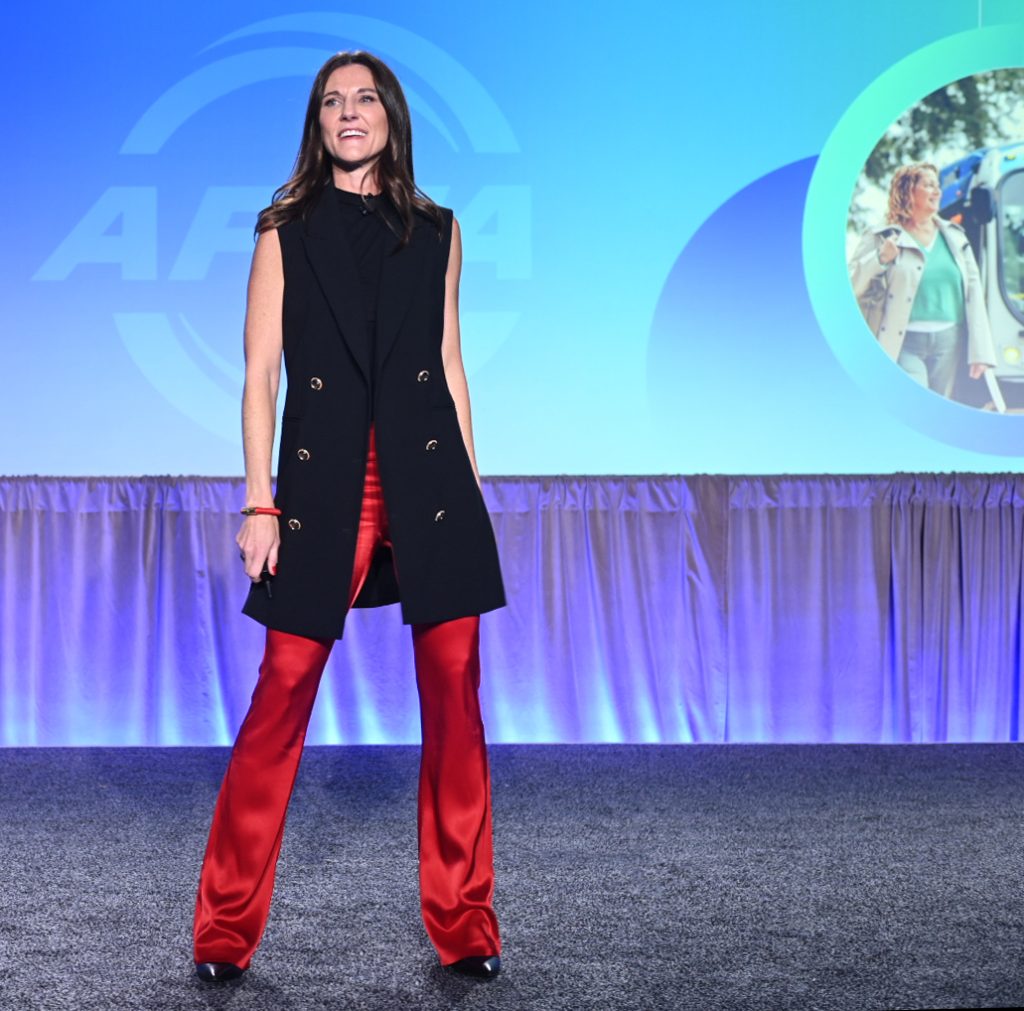
A self-labelled “positive disruptor,” she used her own life story to challenge attendees to think about their personal or professional aspirations through the lens of AI. “Ask yourself, ‘What do I really want to do?’ and ‘How can A.I. help me achieve my Why Not Now moment?’ ”
“We vote with our time for the life we want to live,” she said, explaining that everyone overestimates their bandwidth and underestimates their capacity. AI allows us to flip that statement and stretch our capacity by managing our priorities, not our time.
After interacting with select audience members who shared their aspirational ideas, Martin said we need to think of AI not as a technology, but rather as a “thought partner” and a strategy to “multiply and manipulate talent and time to achieve what we want to do.”
There are many AI applications for public transportation, she said, from predictive maintenance and dynamic timelines to traffic optimization and flexible routing.
“Think about how AI-driven customer interactions can humanize your organizations in real time—with communications, safety alerts, and personalized rider experiences that build trust and convert connections into loyalty,” she said.
She reminded attendees that “this is either a ‘trampoline’ or ‘trap’ moment; AI is a companion, not a competitor,” she said. “It’s not something to fear; it’s not going to take our jobs,” Martin added. “It’s the people who don’t know how to use it whose jobs are at risk.”
Learn more about Amy Jo Martin and her best-selling book, “Renegades Make the Rules” here.
A video of the Opening General Session can be viewed here.